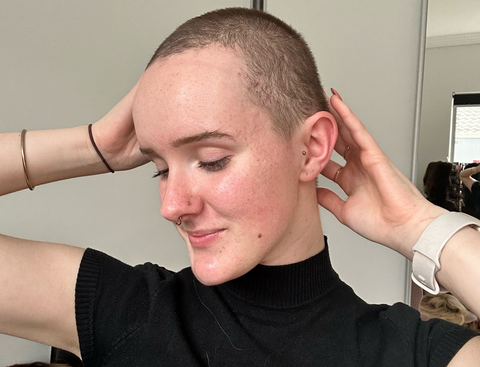We all know that life is full of challenges. From work pressures to personal struggles, everyone encounters stress at different junctures in their life. But have you ever stopped to think about how stress might be affecting your hair? It may sound surprising, but there's a significant connection between stress and hair loss.
The Nexus of Stress and Hair Loss
For many individuals, the relationship between stress and hair loss is a vicious cycle. Certain life-altering events, such as personal tragedies, hormonal imbalances, nutritional deficits, and even psychological challenges, can introduce heightened levels of stress. And in some cases, the result is quite evident in the form of hair thinning or shedding.

However, here's the silver lining: hair loss induced by stress is often temporary. When you can manage your stress effectively, your hair is likely to find its way back to its original glory.
Delving Deeper: How Does Stress Impact Hair?
To get to the root (pun intended!) of this phenomenon, let's explore how stress contributes to hair loss:
-
Interrupting the Hair Growth Cycle: Hair has its own life cycle comprising growth, resting, and shedding phases. Telogen Effluvium, a condition triggered by stress, pushes a larger number of hair follicles into the resting phase. Consequently, this causes an increase in hair shedding. While losing about 100 hairs a day is considered normal, shedding 300 or more strands might indicate that stress is playing its part.

-
Hormonal Havoc: Chronic stress is infamous for creating hormonal chaos. One of the primary stress hormones, cortisol, sees a spike during prolonged stress periods. Such imbalances might also be linked to changes in birth control methods.
-
Starving the Scalp: Stress, especially when chronic, can rob the body of essential nutrients vital for healthy hair growth. The deficiency manifests in the form of weak, brittle hair that's susceptible to breakage and loss.
-
Hair-Pulling Disorder: Stress can also be the culprit behind Trichotillomania—a condition where individuals, driven by anxiety, begin to pull out their hair.
Is Your Hair Loss Triggered by Stress?
Hair loss is multifactorial. Stress might be a key player, but other factors like genetics, underlying medical conditions, or hormonal imbalances shouldn't be dismissed. It's imperative to consult a healthcare professional if you're witnessing significant hair loss. They can help pinpoint the cause and guide you towards an effective solution.
Bouncing Back: Strategies to Combat Stress-Induced Hair Loss
No one should feel alone in their struggles, especially when dealing with the dual challenges of stress and hair loss. Here are some effective strategies:
-
Seek Professional Help: Don’t bottle up your feelings. Reach out to therapists or counselors who can provide guidance.
-
Embrace a Balanced Lifestyle: Engage in regular exercise, maintain a nutritious diet, and ensure adequate sleep. These habits can significantly mitigate stress.
-
Prioritize Self-Care: Remember, it's okay to take a step back and indulge in activities that relax and rejuvenate you. Whether it's reading, spa days, or even a walk in the park, find your stress busters.
-
Alternative Hair Solutions: If hair loss persists, consider options like toppers or wigs. They can restore your confidence and give you a fresh, new look.
In Closing
Stress is an undeniable part of life, but it shouldn't have the power to steal your hair's vibrancy. If stress-related hair loss is causing concern, remember that support is just a conversation away. Whether it's seeking professional help or finding the right hair solution, there's a way to regain both your peace of mind and the lustre of your locks. Remember, hair challenges can be addressed; all you need is the right guidance and approach.